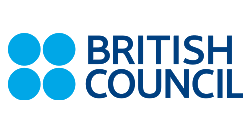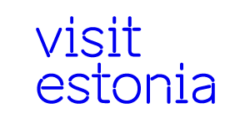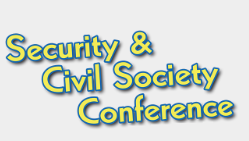In the framework of the Youth Advocacy Programme entitled “Promoting youth advocacy as a tool for dialogue and influencing social change”, a first international training session will happening 2-5th February 2023 in Narva, Estonia where Nordic andEstonian participants will discuss the concept of youth advocacy, learn the necessary knowledge in the field and also gain practical experience through four key areas that have proven to be key challenges in the process of promoting youth advocacy: youth leadership development, advocacy education, strengthening youth associations and civil society, and youth involvement and participation in decision-making processes. These areas should not be seen in isolation, but as interlinked challenges that need to be tackled holistically.
Registration is open until 1st of February 2023
Registration link: https://forms.gle/MWEFovFMAnQm5ZAdA
For more information please turn to info@sscw.ee or +372 55602993
The aim of the 4 international trainings is to provide constructive knowledge and skills on the concept and practice of advocacy education, ranging from public speaking, presentation, advocacy strategies and other such skills. Through international cooperation, exchange experiences and good practices on how to initiate change (contributing to the legislative process, organising campaigns promoting youth interests, etc.) and to create a comparative perspective to highlight the difficulties in the Estonian situation and illustrate the Nordic and European
Each training session will follow the same structure, but will address the main themes at the different levels described above to ensure a comprehensive overview of the topic. The focus of the all trainings are on young people’s participation in society and how advocacy can be used to promote young people’s participation in order to make it more effective in creating change, and therefore also includes the specific skills needed to be a good advocate and to exchange perspectives and experiences to motivate young people to promote their own ideas.
The first part of the training is a skills session covering the skills needed to be a good advocate and build your own advocacy campaigns. The second part of the training will be dedicated to gaining practical experience by visiting different institutions that promote/support and help youth work and work on behalf of young people. The final part of the training session will address the issues facing young people in each partner country, what are the common challenges that could be addressed through joint efforts, and how to link and use advocacy methods to promote awareness of these issues. This will be complemented by strategic discussions with experts, exercises and group work to use the Nordic cooperation perspective to exchange experiences and best practices on how to initiate change (organise campaigns, etc.) and to create a comparative perspective for future solutions.
The Estonian and international training meetings will focus on the development of skills and capacities of youth leaders, and on raising general awareness on youth leadership, advocacy education, strengthening youth associations and civil society, and the involvement and participation of young people in decision-making processes.
Methodology and programme
The meeting is designed as a mutual learning process where participants can compare their approaches to advocacy in different European countries in a dialogical intercultural approach and environment. At the end of the seminar, participants will design activities and projects to promote sustainable development at national or regional level.
Outcomes:
The training framework will generate an advocacy document on youth participation and dialogue, which will serve as a basis for further activities and will be disseminated among partners and decision-makers at local and international level to ensure the sustainability of the project. The results of the work of the training sessions will be compiled in a single Youth Advocacy Statement, which will be disseminated among youth associations and partner organisations/agencies in the field.
Programme is supported by Nordic Culture Point (in frame of Youth Advocacy Alliance) and British Council (People to People programme)



AGENDA
10.00 – 13.00 Participation in the international conference (Grant room)
13.00 – 14.00 Lunch
14.00 – 14.10 Purpose of the international training-meeting and division of the young people into working groups to work on one of the sections of the final outcome – the Youth Advocacy Statement. (Studio room)
14.10 – 14.30 Presentations “Advocacy – what is it?” – Anna Lisa Strakova, University of Tartu and Triin Roos, Estonian Youth Council.
14.30 – 15.15 Leadership Training for Young Leaders I
– Youth Leadership training (Goal Setting and Planning (Triin Roos & ENL)
15.15 – 16.00 Leadership Training for Young Leaders II
– Change Management (Anneli Ohvril)
16.00 – 16.15 Coffee break
16.15 – 17.00 Leadership Training for Young Leaders II
19.00 – 21.00 Gala Dinner
4.02.2023, Saturday – Practical part and strategic dialogue & Capability Training for Young Leaders Part II
07.00 – 08.20 Breakfast and departure the the venue (Meresuu Spa Hotel).
09.00 – 10.00 Practical part: meeting with a youth advocacy expert/Visit to a youth advocacy-led NGO. (Vitatiim, SSCW, Sosialistisk Ungdom and Femina)
10:00 – 12.00 Keynote speeches and first dialogue session on intercultural dialogue – structured dialogue on the topic with keynote speakers followed by a working groups
12:00 – 13.00 Strategic Dialogue using the World Café method – group discussions to initiate a strategic dialogue (dialogue with power and policy makers who deal with youth issues and promote youth well-being in their daily work).
12.00 – 13.00 Youth Advocacy Statement Process/Strategic Dialogue – participants will share their experiences and knowledge on the assigned topic and conduct the first group exercises/questionnaire.
13:00 – 14:00 Lunch
14:00 – 15:00 Process of preparing the Youth Advocacy Call (Youth, experts and youth associations and officials).
15.00 – 16.00 Synthesis of the results of the strategic dialogue and summary of the practice.
16.00 – 20.00 Estonian culture programm
05.02.2023, Sunday – Conclusions
09.00 – 10.00 Presentation of the results (overview of the training learnt and practical skills acquired).
10.00 – 11.00 Presentation of the youth advocacy appeal and the strategic plan.
12.00 – 15.00 Conclusions, visiting Narva Castle and Lunch











